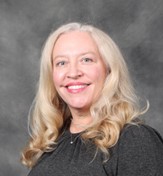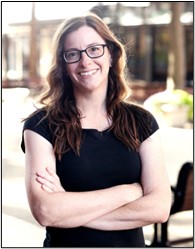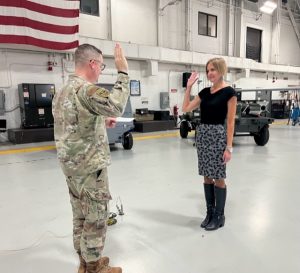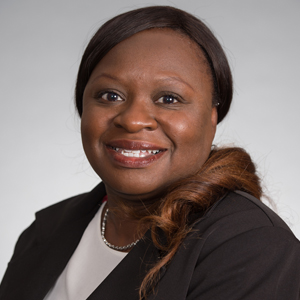Learn to take a proactive approach to addressing sustainability challenges and create positive impact by promoting sustainable practices.
Climate change and environmental degradation are among the greatest challenges facing our planet. Humanity has solutions in hand to address the impacts of climate change, yet we are not making the necessary adjustments quickly enough. Sustainability leaders can help address these challenges by promoting sustainable practices and developing innovative solutions.
By taking a holistic approach to leadership, sustainability leaders consider the long-term impacts of their decisions on the environment, society, and the economy. They are committed to promoting sustainable practices in their organizations and communities, and they encourage others to do the same.
In partnership with One Earth Leadership, Syracuse University announces a three phase Sustainability Leadership Program. Phase I of the program is a two-part virtual session engaging participants in discussions facilitated by instructors Karin Botto, senior human resources business partner at Syracuse University and Hilary McManus, professor of biological and environmental sciences at Le Moyne College. Phase II is an in-person, on-site retreat hosted at Syracuse University’s Minnowbrook Conference Center in Blue Mountain Lake, NY from June 3-6, 2023. Phase III is an additional virtual session to solidify the key learnings from the program.
Throughout the Sustainability Leadership Program, participants will:
- Learn about climate change issues by connecting the dots between personal, organizational, and planetary thriving.
- Deepen self-awareness, personal well-being, and resilience through learning a variety of contemplative practices aimed at mitigating eco-anxiety.
- Develop and present SMART leadership goals for yourself, your community, and/or your organization.
- Engage with change management practices to support your leadership goals.
- Experience a variety of peer coaching methods and professional mentoring.
- Expand their network of change-makers to enhance community engagement.
Upon successful completion of phases I-III of the program, participants will earn a foundations microcredential. Additionally, participants can continue to earn an impact microcredential by completing a portfolio review.
The registration deadline for the Sustainability Leadership Program is May 5, 2023. Interested participants can register here.
About the Instructors
Karin Botto
Senior Human Resources Business Partner at Syracuse University

Dr. Karin Botto has worked in higher education for more than three decades in areas such as leadership development, human resources, enrollment management, strategic planning, mission integration, and faculty development. She currently serves as Senior HR Business Partner at Syracuse University where she partners with senior leaders to shape, develop, and deliver plans and strategy in line with the needs and priorities of the organization including organizational development, performance management, talent management, professional development, workforce planning, and employee relations. She also teaches Individual & Collective Discernment in the Master of Business Administration program at Le Moyne College.
Botto holds a Master of Science in Training & Organizational Development from Saint Joseph’s University and earned a Doctorate of Education from Creighton University in Interdisciplinary Leadership. Her dissertation research focused on developing the ecological self for sustainability leadership. She was recently interviewed by Jesuit Schools Network about her research for the Ignatian Inquiry Podcast.
In 2015, Botto co-developed a leadership model published in the Journal of Jesuit Business Education (2015). She co-authored a chapter of Success After Tenure (2019) by Stylus Publishing and wrote a chapter of Women Courageous: Leading through the Labyrinth (2021) by Emerald Publishing.
Botto’s specialties include sustainability leadership, group dynamics and decision-making, leadership development, coaching and mentoring, management training, and integrating contemplative practices into one’s life and leadership. Her most important role is mother to Jack, Gwyn, and Gavin.
Hilary McManus
Professor of Biological and Environmental Sciences at Le Moyne College

Hilary McManus is Professor of Biological and Environmental Sciences at Le Moyne College in Syracuse, NY. She teaches about the science of the climate crisis in the classroom and local community and aims to nurture the current and next generations of environmental stewards through hands-on experiences connecting with nature. Hilary co-chairs Le Moyne’s Environmental Sustainability Steering Committee, developing a comprehensive campus-wide framework for a greener campus, and is also a certified executive leadership and career coach.
In 2018, Hilary was selected as a participant in Homeward Bound, a global leadership development initiative for women in STEMM, which culminated in a 3-week voyage to Antarctica with 78 other women from around the world. Currently over 700 women strong, the network continues to grow as an international collaboration of women scientists aiming to lead and influence decision making as it shapes our planet. Hilary is also a member of the Climate Reality Leadership Corps founded and led by Al Gore. She delivers presentations with interactive components that offer audience members an opportunity to brainstorm climate action items on the individual, community, and policy levels.
Hilary’s time away from Le Moyne is spent with her two sons, hiking, camping, gardening, and sitting zazen.


 Nichole Henry, director of admissions and recruitment at the College of Professional Studies, has been named a 2023 Unsung Hero Award winner by the Rev. Dr. Martin Luther King Jr. Celebration planning committee.
Nichole Henry, director of admissions and recruitment at the College of Professional Studies, has been named a 2023 Unsung Hero Award winner by the Rev. Dr. Martin Luther King Jr. Celebration planning committee.